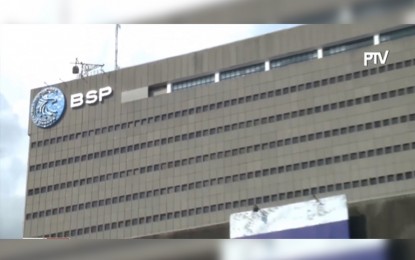
MANILA -- Additional cut in the Bangko Sentral ng Pilipinas’ (BSP) key policy rates are seen in the last quarter of 2019 after inflation decelerated further to 0.9 percent last September.
ANZ Research forecasts the Philippine inflation rate in the last quarter of 2019 to be around the current level due to lower increases in the prices of some food items.
In a report as a reaction to the September 2019 inflation report, ANZ Research said the domestic inflation rate in the ninth month this year is below its 1.1 percent projection.
“The drop primarily reflects a high base effect last year, though recent sequential declines in the prices of key food items and utilities also played a part,” it said.
The Philippine Statistics Authority (PSA) reported that last September’s inflation rate is lower than the 1.7 percent last August and the 6.7 percent in September 2018, which, in turn, is the same as the October 2018 level and is the peak last year.
The average rate of price increases to date stood at 2.8 percent, at the lower half of the government’s 2 percent to 4 percent target range until 2021.
Further deceleration of the inflation rate in the ninth month this year was traced to the 0.9 annual rate of decrease in the heavily-weighted food and non-alcoholic beverages, similar to the rate of decrease of the transport index due to drop in oil prices.
“If Q3 GDP growth proves to be another downside surprise, the Bangko Sentral ng Pilipinas (BSP) may cut its policy rate as soon as their next meeting in November,” the report added.
BSP’s policy-making Monetary Board (MB) cut the central bank’s key rates by a total of 75 basis points to date given the sustained drop in inflation rate and firm domestic output.
To date, the rate of the BSP’s overnight reverse repurchase (RRP) facility is at 4 percent.
Monetary officials believe that amid the below-target domestic output since the first quarter this year, growth remains solid.
Growth, as measured by gross domestic product (GDP), averaged at 5.5 percent in the first half of the year, below the government’s full-year target of 6 percent to 7 percent.
The GDP slowed from 6.5 percent in the last quarter of 2018 to 5.6 percent in the first quarter this year and further to 5.5 percent in the second quarter.
Authorities attributed this to the impact of the delay in the approval of this year’s national budget, which hampered the government to spend according to the program.
However, economic managers are confident of higher growth in the second half of the year due to the catch-up spending program, especially on infrastructure projects.
Relatively, ING Bank Manila chief economist Nicholas Mapa, in a report Friday, projects inflation rate “to rebound but stay within a target” once the impact of last year’s elevated rates dissipates.
“Price pressures appear to be benign as food prices are expected to be more stable given new legislation and the government’s openness to importing foodstuff," he said.
“With this environment, the BSP if afforded scope to ease policy rate further should other data points warrant it but for the most part the price objective remains well in hand,” he added. (PNA)
